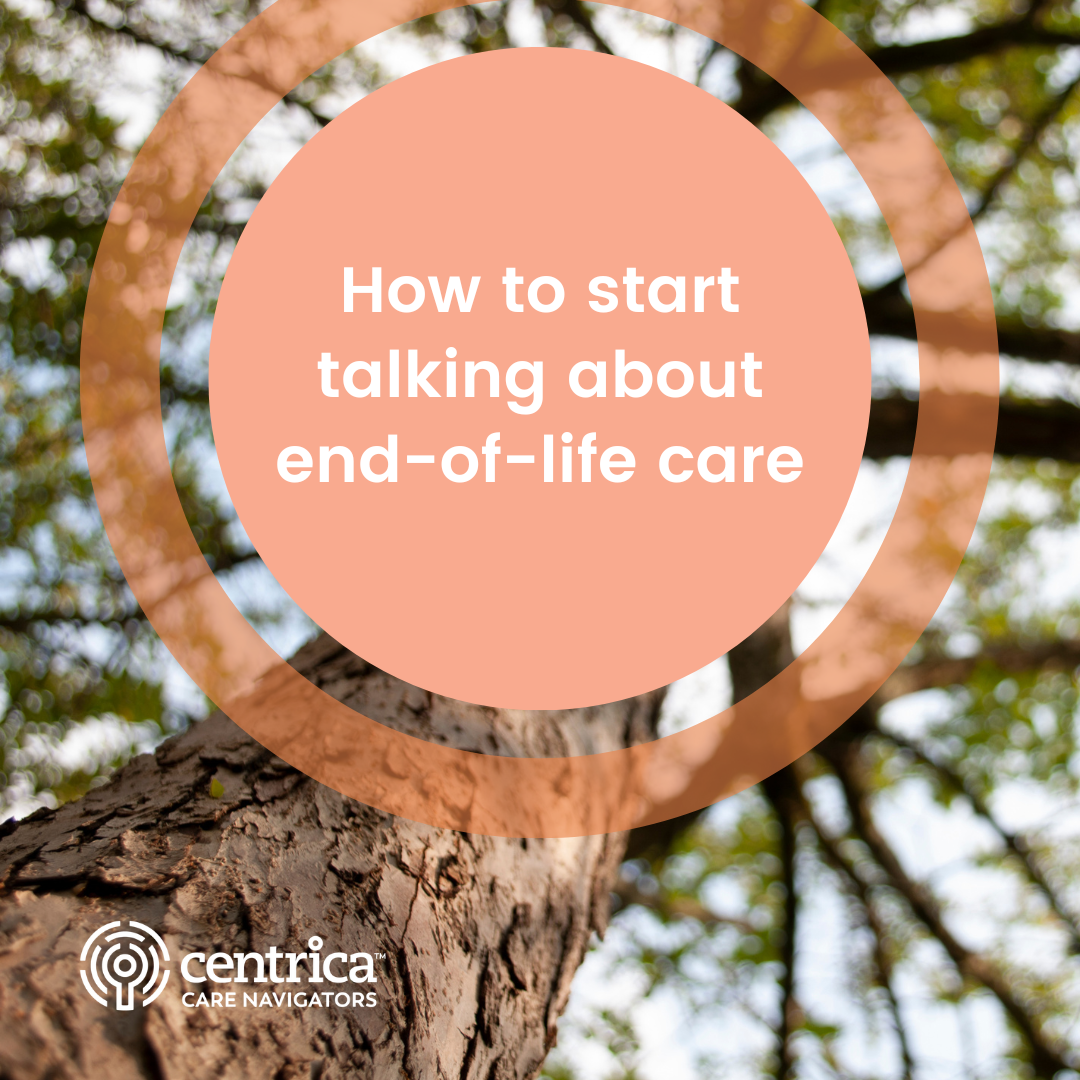Recently, my in-laws came for a visit. They live a few hours away, so we don’t see one another in person all that often. One night after dinner they were talking about their day – they spent a few hours with their grandson at the history museum.
That made them think about their own history, and after a conversation about who spoke the best English after immigrating to the U.S., I had the opening I was waiting for.
I said, “I know it’s something people don’t like to talk about, but it’s important. What are your plans for end-of-life care?” They understood what I meant because I work here at Centrica Care Navigators, and they realize there’s more to care than just the last few days and hours of life.
It really was that easy to bring up the topic, and they were OK with discussing it. They talked about some of the things they have done to be prepared, and also mentioned that they need to do more. We didn’t talk for all that long about end-of-life care (everyone was ready to watch some TV and call it a night), but that conversation was just the start.
Triggering the talk
Death can be an uncomfortable topic, but it’s an important one. Everyone dies, and everyone deserves to live the last days, weeks, and months of their life in as much comfort as possible.
So how do you start the conversation about getting appropriate end-of-life care? Begin like I did, by mentioning that it’s an important topic that needs to be discussed. Try something like, “I want to be prepared like ___ was before his death,” or “I want to make sure all your affairs are in order.”
If the person you’re talking to is obviously upset, or quickly tries to change the subject, maybe this isn’t the right time for a talk. But don’t forget to try again at another time.
Other people – especially older people or those who are already living with a life-limiting illness – have probably thought about care for themselves, but might not have felt like they could talk to anyone about it, at least until you brought the subject up.
Topics of conversation
You certainly don’t have to cover every aspect of end-of-life care at once. Here are a few things you can ask during that first talk, or future conversations you have later on as you continue to discuss care with your loved one.
- What are your medical needs?
- What is your legal and financial situation (is there a will)?
- What is your view on spirituality and religion?
- Family relationships: Is there a long-lost relative who should be contacted, for example?
- Who should be the primary caregiver, the person who works with our care team?
- Do you want to make care decisions or leave the choices up to your doctor?
- When do you want to stop treating a disease and be ready for hospice?
- When you die, do you want to be alone, or surrounded by others?
Again, you don’t have to talk about everything in one single sitting. You can talk a little and when it becomes especially overwhelming, stop and move on to something else entirely.
The more you know about a loved one’s end-of-life wishes, the better prepared all of you will be when the time comes.
We can help you discuss end-of-life care with expert guidance. Learn more by exploring our website or calling Centrica Care Navigators at 269.345.0273.




